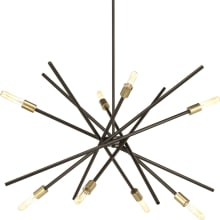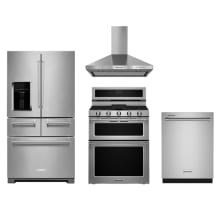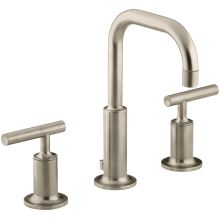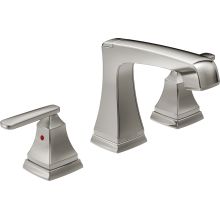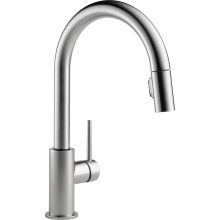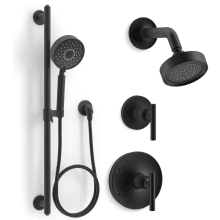Build.com for Pros: A Guide for Professional Contractors
Make a stellar first impression on clients and secure more jobs by knowing these most commonly-asked questions.
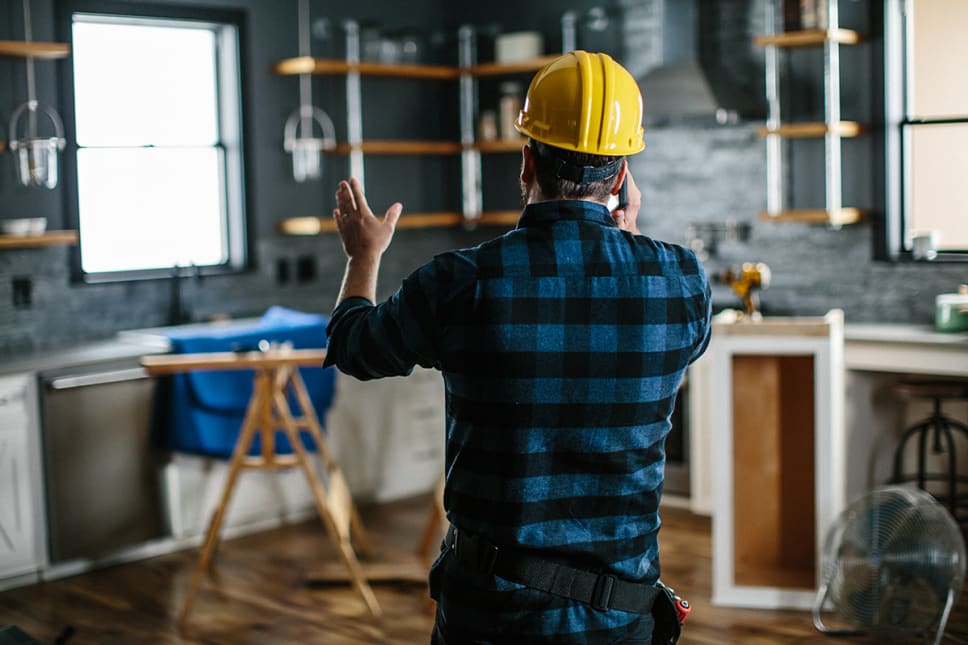
A quick internet search brings up dozens of guides designed for homeowners to learn what questions to ask a contractor during a meeting. While homeowners should absolutely ask questions of potential contractors, few guides exist to help contractors provide satisfactory answers.
Clear communication can be the difference between a meeting that ends with a contract or your potential client continuing to shop around. Use this guide to learn more about the common questions consumers ask their contractors so you can be prepared with the answer.
Do You Have Contractor Insurance?

The question of "contractor insurance" is one you will likely be asked right away. It can be a bit hard to parse out as a contractor, but in general, the consumer is asking if you have general liability insurance to perform construction work in their area. In many cases, consumers are asking if you're licensed and bonded as well.
The best way to answer the question of contractor insurance is with a resounding yes. Follow up by offering to show potential clients supporting documentation in person or send it to them via e-mail. This will give them peace-of-mind and show that you're doing business by the book.
How Much Will the Job Cost?

The cost question is one that all consumers are advised to ask a contractor as soon as possible. As a contractor, fielding this question can be somewhat tricky. During a first meeting, there can be so many variables and questions left unanswered that you may not know.
Answer this question by offering to prepare a detailed quote based on their project needs. If customers seem displeased by having to wait for a quote, remind them that you'll be able to give them the most accurate pricing information if you have time to do your homework on the project specifics instead of answering on the spot.
In the end, accurate pricing is much better for the consumer. You may also want to mention to your potential customer that you might need to reach out with questions in the coming days to prepare a quote.
How Do Payments Work?

Many consumer guides tell homeowners to ask for contractor payment information up-front, often in the first meeting. Like other questions on this list, it can put you in a tough spot, particularly if you're unsure of what work really needs to be done.
You have a few options to answer this question. The first is to tell your potential customer that you'll break down payments and due dates on their quote. This may be your best bet if you don't have a typical payment schedule and prefer to work on a case-by-case basis.
For smaller or well-defined jobs where the work you need to do is clear, you may be able to present a basic contractor payment schedule. For example, 50% of the project cost may be due before the first day of work, with the remaining balance paid before the last day spent on the project.
How Long Will the Job Take?

Figuring out how long a job will take on the spot is very difficult, even for the most seasoned contractor. Remodeling a bathroom or updating lighting throughout the house is much different than renovating a whole home. Still, you'll likely field this question right off the bat.
If the project is very small, you may be able to give a general timeframe right away, with a caveat that procuring materials, weather, and an assortment of other factors out of your control could alter your expected end date. For large-scale jobs, aim to include a timeframe as part of your quote instead of giving one on the spot.
You can also remind customers that you can lock in dates with a contractor contract once they commit to the job.
What Does an Average Work Day Look Like?

Construction projects and home renovations are quite foreign to the average homeowner. For that reason, many consumer guides remind homeowners that scheduling queries should be at the top of their list of questions to ask a general contractor. Most of the time, consumers want to hear about start and end times, as well as how many people will be on their property at once.
Consumers will also want to know about loud noises, odors, and other disturbing parts of the project so they can be away from their home, if desired. If customers are particularly concerned about scheduling, put them at ease by working with them to create a weekly or monthly calendar with a to-do list.
Will the Job Get the Same Crew Every Day?

Homeowners prefer having the same work staff at their home each day. It makes outsiders more familiar and may help bolster communication. It may not always be possible for you to provide the same crew every day though.
When this question comes up, simply be honest with potential customers. If you can provide the same crew, or if you only work with one crew, let them know. If not, let them know that the crew may change somewhat based on availability, but that you only work with skilled crew members that you value as part of your team.
It's also important to let clients know that you or other principles overseeing the project will be on-site regularly.
What Does the Homeowner Need to Do?

Consumers often ask contractors what they need to do before home renovations begin. In general, asking clients to remove personal items from spaces like the bathroom or kitchen is best.
However, you do need to make it clear that you'll tackle most of the prep work and handle any large tasks, like moving appliances in the kitchen, for example. Most consumers simply don't want to take on these tasks.
Now is also a good time to let consumers know that you'll tackle clean-up operations as well.
Prep Ahead to Get the Job
Engaging with your potential clients during a first meeting is incredibly valuable. With the right answers ready to go, you'll help lock in jobs and keep consumers from shopping around and meeting with your competitors.
Having answers to the questions consumers ask a contractor also makes you look like a prepared, professional contractor. That instills confidence from day one, making your job easier and your relationship with your client mutually beneficial.

